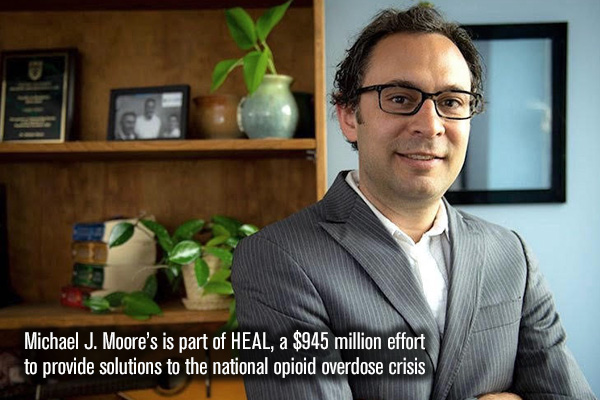SCIENCE MAY ONE DAY DO SO… –
Sept. 21, 2021 – The study is his first paper under the HEAL Initiative, or Helping to End Addiction Long-term Initiative, a $945 million, multi-university funding endeavor sponsored by the National Institutes of Health.
Moore’s work is among dozens of research projects taking place across the United States as part of HEAL, which was launched in April 2018 to provide scientific solutions to the national opioid overdose crisis, including improved treatment strategies for pain as well as opioid use disorders (OUDs). Funded by Congress, the initiative involves numerous universities and almost every NIH institute and center in order to approach the crisis from all angles and disciplines. Moore’s co-authors on the paper are Kevin J. Pollard, a post-doc in Moore’s lab; Devon A. Bowser, a PhD student who graduated from the Bioinnovation program in 2019; Wesley A. Anderson, a scientist at AxoSim, a Tulane spinout where the research initially began; and Mostafa Meselhe, a biomedical engineering student who graduated from Tulane in 2020.
He is continuing to work with Randolph Ashton, an associate professor of biomedical engineering at the University of Wisconsin, and Swaminathan Rajaraman, an assistant professor of electrical and computer engineering at the University of Central Florida. Ashton is developing human stem-cell derived spinal neurons, and Rajaraman is developing specially-made microelectrodes for taking electrical measurements from the cells.



